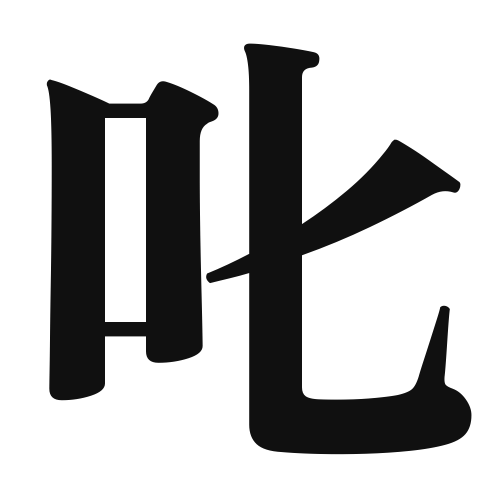1. Overview of Meaning
The kanji “叱” (pronounced “shitsu” or “shika”) means “to scold” or “to reprimand.” It conveys the act of expressing disapproval or criticism towards someone’s behavior, often in a stern manner.
2. Formation and Radical
Formation of the Kanji: The kanji “叱” is a phonetic compound (形声文字) that combines the radical for “mouth” (口) with a phonetic component that suggests the sound. This structure indicates that the action involves vocal expression.
Radical: The radical of “叱” is 口 (kuchi), which means “mouth.” This radical is commonly associated with actions related to speaking or vocalization.
3. Examples of Usage
Common Words and Phrases:
- 叱責 (しっせき, shisseki) – scolding, reprimand
- 叱る (しかる, shikaru) – to scold
Example Sentences in Daily Conversation:
- 先生は学生を叱った。 (せんせいはがくせいをしかった。) – The teacher scolded the student.
- 彼は友達を叱ることができなかった。 (かれはともだちをしかることができなかった。) – He couldn’t scold his friend.
4. Synonyms and Antonyms
Similar Kanji:
- 叱責 (しっせき, shisseki) – reprimand (more formal than 叱る)
- 注意 (ちゅうい, chūi) – caution (less severe than scolding)
Antonyms:
- 褒める (ほめる, homeru) – to praise (the opposite of scolding)
5. Cultural and Historical Background
Relation to Japanese Culture: In Japanese culture, scolding is often seen as a way to guide and correct behavior, especially in educational settings. It reflects the value placed on discipline and respect.
Proverbs and Idioms:
- 叱るは愛 (しかるはあい, shikaru wa ai) – “To scold is to love,” indicating that reprimanding someone can come from a place of care.
